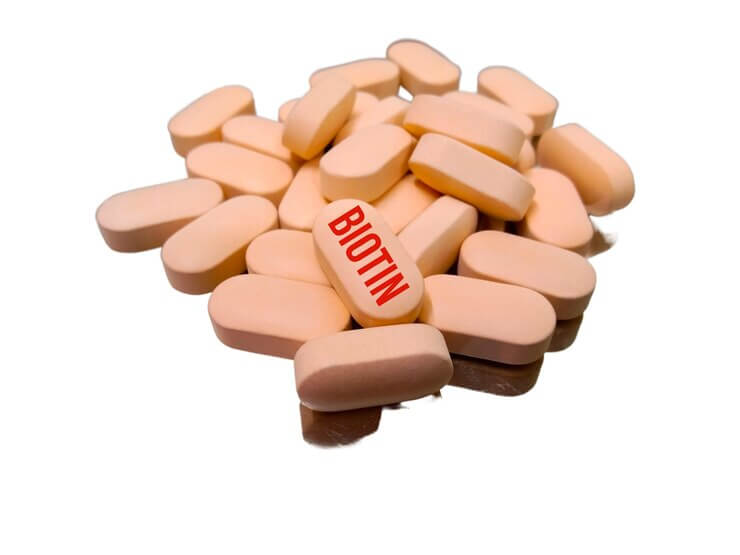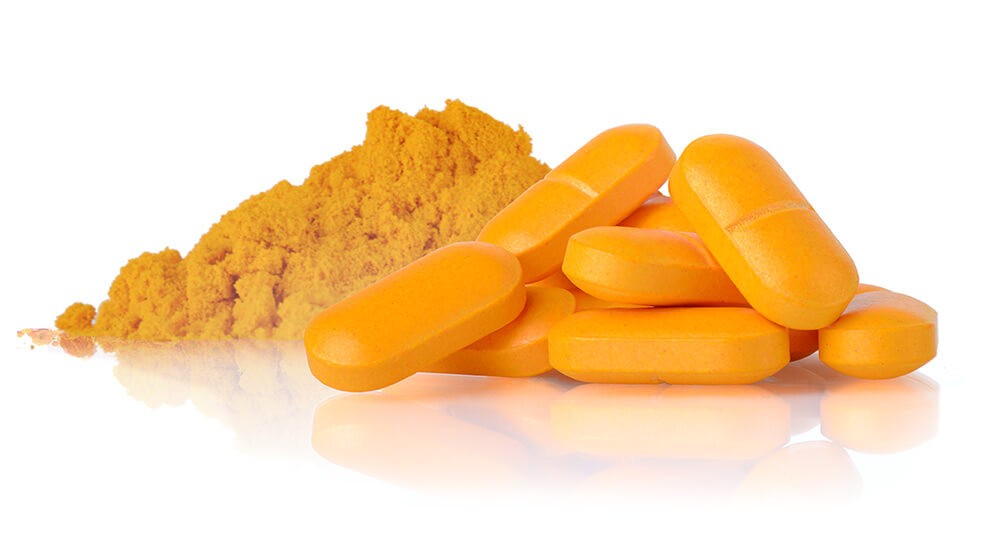Skin health is paramount in our daily lives, serving not just aesthetic purposes but also playing a crucial role in our overall well-being. In this age of wellness, supplements have become a cornerstone in skin care regimens. Let’s explore the top 10 supplements that promise beautiful, glowing skin.
Vitamin C

Vitamin C, scientifically known as ascorbic acid, is a vital nutrient renowned for its benefits to the skin. It is a potent antioxidant that plays a crucial role in various skin functions.
Benefits of Vitamin C for the Skin
- Collagen Synthesis: Vitamin C is essential for the synthesis of collagen, a protein that gives our skin its firmness and elasticity. By promoting collagen production, Vitamin C helps reduce the appearance of fine lines and wrinkles, thus aiding in maintaining a youthful complexion.
- Protection Against Sun Damage: Exposure to UV light can cause photoaging, characterized by wrinkles, altered pigmentation, and loss of skin elasticity. Vitamin C protects the skin from the harmful effects of UV rays by neutralizing free radicals, thus preventing signs of premature aging.
- Brightening and Even Skin Tone: Vitamin C is known for its brightening properties. It helps reduce the appearance of dark spots and hyperpigmentation, leading to a more even-toned and radiant complexion.
- Skin Repair: It aids in the skin’s natural regeneration process, helping your body repair damaged skin cells. This is particularly beneficial in healing wounds and reducing the appearance of scars.
- Hydration: Vitamin C can help to improve skin hydration and prevent skin from becoming too dry or oily.
Recommended Dosage and Sources
- The recommended daily intake of Vitamin C for adults is around 65 to 90 milligrams (mg) per day, with an upper limit of 2,000 mg per day. However, for skincare purposes, topical Vitamin C serums with concentrations ranging from 10% to 20% are commonly used.
- Dietary sources of Vitamin C include citrus fruits like oranges, lemons, and grapefruits, as well as vegetables such as bell peppers, broccoli, and spinach.
Topical Application
- Topical Vitamin C serums are a popular way to deliver the antioxidant directly to the skin. These serums are typically applied once or twice daily after cleansing and before moisturizing.
- When using a Vitamin C serum, it’s important to start with a lower concentration to gauge skin sensitivity and gradually increase it.
Considerations
- Vitamin C can degrade and become less effective when exposed to light or air. Therefore, it’s essential to look for serums that are packaged in opaque, air-tight containers.
- Combining Vitamin C with other skin care ingredients like sunscreen enhances its protective effects against UV damage.
- It’s always advisable to do a patch test when trying a new Vitamin C product to check for any allergic reactions.
Vitamin E

Vitamin E, known scientifically as tocopherol, is a fat-soluble antioxidant that is essential for maintaining healthy skin. It is recognized for its protective and nourishing properties, making it a popular ingredient in many skincare products.
Benefits of Vitamin E for the Skin
- Moisturizing Properties: Vitamin E is an excellent moisturizer that helps keep the skin hydrated and prevents it from feeling dry and flaky. It strengthens the skin’s barrier function, trapping moisture and keeping the skin healthy and hydrated.
- Antioxidant Protection: As an antioxidant, Vitamin E combats the damaging effects of free radicals caused by environmental factors such as UV rays and pollution. This action helps in preventing premature aging of the skin, including wrinkles and fine lines.
- Wound Healing and Scar Reduction: Vitamin E has been shown to aid in the healing process of the skin. It can help reduce the appearance of scars and facilitate the healing of minor cuts or abrasions.
- Reducing UV Damage: While it doesn’t replace sunscreen, Vitamin E has properties that can help in reducing the skin damage caused by exposure to UV rays. It complements sunscreen by adding an extra layer of protection.
- Improving Skin Texture and Tone: Regular use of Vitamin E can help in improving the overall texture and tone of the skin, making it appear more even and smooth.
Recommended Dosage and Sources
- The recommended dietary allowance (RDA) for Vitamin E is about 15 milligrams (mg) per day for adults.
- Rich dietary sources include nuts (like almonds and hazelnuts), seeds (like sunflower seeds), and vegetable oils (like wheat germ oil, sunflower oil, and safflower oil). Leafy green vegetables and fortified cereals also contain Vitamin E.
Topical Application
- Vitamin E is commonly found in various skincare products, including creams, serums, and oils. Its concentration in these products can vary.
- When used topically, Vitamin E can be directly applied to the skin or mixed with other products like moisturizers and serums.
- For those with sensitive skin, it’s advisable to start with a lower concentration and perform a patch test to ensure there are no adverse reactions.
Synergistic Effect with Vitamin C
- Vitamin E works synergistically with Vitamin C. When used together, they can enhance each other’s antioxidant effects, providing more robust protection against environmental damage.
Considerations
- People with oily or acne-prone skin should use Vitamin E with caution, as it can be heavy and might exacerbate acne in some cases.
- Just like with any supplement or skincare product, it’s recommended to consult with a dermatologist or healthcare professional before incorporating new products into your regimen, especially if you have specific skin concerns.
Related Article: Top 3 Uses Of Vitamin E Capsules For Skin
Omega-3 Fatty Acids

Omega-3 fatty acids are essential fats that play a crucial role in maintaining skin health. They are not produced by the body and must be obtained through diet or supplements. There are three main types of omega-3 fatty acids: alpha-linolenic acid (ALA), found in plant oils, and eicosapentaenoic acid (EPA) and docosahexaenoic acid (DHA), both found in marine oils.
Benefits of Omega-3 Fatty Acids for the Skin
- Moisturizing Effect: Omega-3 fatty acids help maintain the skin’s lipid barrier, crucial in keeping the skin hydrated. A healthy skin barrier prevents excessive water loss, keeping the skin moist and supple.
- Anti-Inflammatory Properties: One of the most significant benefits of omega-3s is their anti-inflammatory properties. They can help reduce the redness and inflammation associated with acne and other skin conditions like psoriasis and eczema.
- Reducing Sun Sensitivity: Omega-3 fatty acids may make the skin less sensitive to UV rays from the sun. They can help protect the skin from sunburn, reducing the risk of UV damage.
- Improving Skin Elasticity: Regular intake of omega-3 fatty acids can improve skin elasticity, making it firmer and potentially reducing the appearance of fine lines and wrinkles.
- Regulating Oil Production: Omega-3s can help regulate the skin’s oil production, which can benefit those with acne-prone or oily skin.
Recommended Dosage and Sources
- The recommended daily intake of omega-3 fatty acids is not specifically defined, but many health organizations suggest a minimum of 250–500 mg of combined EPA and DHA each day for healthy adults.
- Dietary sources of ALA include flaxseeds, chia seeds, and walnuts. EPA and DHA are primarily found in fatty fish like salmon, mackerel, and sardines, as well as in fish oil supplements.
Topical Application
- While most benefits of omega-3s are obtained through dietary intake, there are also topical products available that contain omega-3 fatty acids. These can be beneficial for direct skin application, providing localized benefits.
Supplementation
- Fish oil supplements are a popular way to increase omega-3 fatty acid intake, especially for those who do not consume enough fatty fish in their diet.
- Algae-based supplements are available as a vegetarian option that provides EPA and DHA.
Considerations
- Balance with Omega-6 Fatty Acids: It’s important to maintain a healthy balance between omega-3 and omega-6 fatty acids in the diet, as an imbalance can lead to inflammation.
- Purity and Quality of Supplements: If choosing to supplement, it’s essential to select high-quality products that are free from contaminants like heavy metals.
- Interaction with Medications: Omega-3 supplements can interact with certain medications, so it’s advisable to consult with a healthcare provider before starting supplementation, especially if you are taking blood thinners or other medications.
Zinc

Zinc is a vital mineral that plays a significant role in many bodily functions, including skin health. It’s known for its immune-boosting properties and ability to support skin repair and maintenance.
Benefits of Zinc for the Skin
- Skin Repair and Renewal: Zinc is essential for cell growth and the process of wound healing. It aids in the repair of damaged tissues and helps in the regeneration of new skin cells.
- Anti-Inflammatory Properties: Zinc has anti-inflammatory properties that can be beneficial in reducing redness and irritation associated with various skin conditions, such as acne, rosacea, and eczema.
- Acne Treatment: Zinc is often used to treat acne due to its ability to reduce inflammation and inhibit the growth of acne-causing bacteria. It also helps regulate oil gland activity, reducing the likelihood of acne breakouts.
- Sun Protection: Zinc oxide is a common ingredient in physical sunscreens. It acts as a barrier that reflects and scatters UV radiation, protecting the skin from sunburn and long-term sun damage.
- Antioxidant Defense: Zinc acts as an antioxidant, protecting skin cells from damage caused by free radicals. This is important for preventing premature aging and maintaining healthy skin.
Recommended Dosage and Sources
- The recommended daily allowance (RDA) for zinc varies by age and sex, but generally, it’s about 11 mg for adult men and 8 mg for adult women.
- Dietary sources of zinc include oysters (which are exceptionally high in zinc), red meat, poultry, beans, nuts, whole grains, and dairy products.
Topical Application
- Topically, zinc is found in various skincare products, especially in treatments for acne and sunscreens. Zinc oxide is a popular form of zinc used in topical applications.
- Zinc-based creams and lotions can help soothe irritated skin and are often recommended for conditions like diaper rash and minor burns.
Supplementation
- Zinc supplements can be beneficial, especially for individuals who have a deficiency or have difficulty obtaining enough zinc through their diet.
- Supplements come in various forms, including zinc gluconate, zinc sulfate, and zinc acetate.
Considerations
- While zinc is essential for skin health, excessive zinc intake can lead to adverse effects, including gastrointestinal issues and interference with the absorption of other minerals.
- Balance in Diet: It’s important to maintain a balanced intake of zinc, as an excess can lead to copper deficiency.
- Skin Sensitivity: Some people may find that topical zinc products can cause dryness or irritation, particularly when used in high concentrations.
- Consultation with Healthcare Professionals: Before starting any new supplement, it is always best to consult with a healthcare provider, especially if you have underlying health conditions or are taking other medications.
Collagen

Collagen is a protein that is abundant in the body, particularly in the skin, bones, and connective tissues. It’s essential for maintaining the structure and elasticity of the skin. As we age, our body’s natural collagen production decreases, which can lead to signs of aging such as wrinkles and sagging skin.
Benefits of Collagen for the Skin
- Skin Elasticity and Hydration: Collagen helps to keep the skin elastic and hydrated. Supplementing with collagen has been shown to improve skin elasticity and hydration levels, leading to a more youthful appearance.
- Reducing Wrinkles and Fine Lines: Regular intake of collagen can reduce the depth of wrinkles and fine lines. It helps in slowing down the aging process of the skin by replenishing the body’s natural collagen stores.
- Wound Healing: Collagen plays a critical role in wound healing. It provides a foundation for new tissue growth, aiding in the skin’s repair process.
- Skin Firmness: By maintaining the skin’s structural integrity, collagen helps to keep the skin firm and plump.
- Protection Against Environmental Damage: Collagen can also help protect the skin from environmental factors like UV rays and pollution, which can accelerate aging.
Sources and Supplementation
- Dietary sources of collagen include bone broth, fish, chicken, egg whites, and gelatin. These foods provide the amino acids necessary for collagen production in the body.
- Collagen supplements are available in various forms, including powders, capsules, and drinks. These supplements are usually derived from animal tissues such as cowhide, fish scales, or chicken skin.
Hydrolyzed Collagen
- Hydrolyzed collagen, also known as collagen peptides, is a form of collagen that is broken down into smaller, easily absorbable particles. It is the most common form found in supplements and is believed to be more effective for skin health.
Vitamin C and Collagen Synthesis
- Vitamin C is crucial for collagen synthesis. Ensuring adequate Vitamin C intake can help maximize the body’s ability to produce collagen.
Topical Collagen
- Topical collagen in creams and serums is also popular. However, the effectiveness of topical collagen is debated, as collagen molecules are generally too large to be absorbed through the skin.
Considerations
- As with any supplement, the quality and source of collagen are important. It’s advisable to choose supplements from reputable manufacturers.
- Some people may experience digestive side effects from collagen supplements, such as feelings of fullness or heartburn.
- Vegan and Vegetarian Alternatives: Since most collagen supplements are animal-derived, vegetarians and vegans can focus on consuming pro-collagen nutrients like Vitamin C, proline, lysine, and copper.
- Consulting Healthcare Professionals: Before starting any new supplement, including collagen, it’s best to consult with a healthcare provider, especially if you have allergies or dietary restrictions.
Biotin

Biotin, commonly referred to as Vitamin B7 or Vitamin H, is a crucial water-soluble component of the B-complex vitamins. It significantly contributes to the maintenance of healthy hair, skin, and nails, while also playing a key role in metabolic processes and energy production.
Benefits of Biotin for the Skin
- Supports Skin Health: Biotin is essential for maintaining the health of the skin. It helps in the production of fatty acids that nourish the skin and help to maintain its moisture balance.
- Improves Skin Appearance: Regular intake of biotin can improve the appearance of the skin, making it look healthier and more vibrant. It’s especially beneficial for people who experience skin conditions like rashes, dermatitis, or acne.
- Promotes Healing: Biotin can aid in the faster healing of skin wounds and may reduce inflammation associated with certain skin conditions.
- Protection Against Fungal Infections: Some studies suggest that biotin can help protect against fungal skin infections and other skin disorders.
Recommended Dosage and Sources
- The recommended daily intake of biotin varies based on age, gender, and health conditions. The general recommendation for adults is 30–100 micrograms (mcg) per day.
- Biotin can be found in a variety of foods, including egg yolks, nuts (almonds, peanuts, pecans, and walnuts), soybeans and other legumes, whole grains, bananas, cauliflower, and mushrooms.
Supplementation
- Biotin supplements are available and are commonly taken to improve hair, skin, and nail health. These supplements come in various forms, including capsules, tablets, and gummies.
- While taking biotin supplements, it’s important to adhere to the recommended dosage to avoid any potential side effects.
Topical Biotin
- Biotin is also included in various cosmetic products like creams, lotions, and hair care products. However, the effectiveness of topical biotin is not as well established as oral supplementation.
Considerations
- Biotin Deficiency: While biotin deficiency is rare, it can lead to skin rashes, hair loss, and brittle nails. Supplementing with biotin can help address these issues.
- Interaction with Medication: Biotin can interact with certain medications, so it’s important to consult with a healthcare professional before starting supplements, especially if you are on medication.
- High Doses and Lab Tests: High doses of biotin may interfere with certain lab tests. It’s important to inform your healthcare provider if you are taking biotin supplements.
- Safety: Biotin is considered safe, but as with any supplement, it’s important to take it within the recommended guidelines.
Hyaluronic Acid

Hyaluronic Acid (HA) is a naturally occurring substance in the human body, found in significant concentrations in the skin, connective tissues, and eyes. Its primary function is to retain water to keep tissues well-lubricated and moist. HA has gained immense popularity in skincare due to its remarkable benefits for the skin.
Benefits of Hyaluronic Acid for the Skin
- Hydration: Hyaluronic Acid can hold up to 1,000 times its weight in water, making it an excellent ingredient for maintaining skin hydration. It helps to keep the skin moisturized, plump, and hydrated.
- Reduces Wrinkles and Fine Lines: By maintaining moisture, HA helps reduce the appearance of fine lines and wrinkles. Regular use can lead to smoother, softer skin with a decrease in wrinkle depth.
- Skin Elasticity: HA helps maintain skin elasticity, giving the skin a firmer appearance. It supports the skin’s ability to bounce back, which is a key aspect of youthful-looking skin.
- Healing Properties: HA has been shown to have healing properties. It’s beneficial in repairing skin from environmental damage, like exposure to UV rays, and aiding in the healing of wounds.
- Suitable for All Skin Types: HA is generally well-tolerated and beneficial for all skin types, including oily and sensitive skin. It’s non-comedogenic, meaning it won’t clog pores.
Topical Application and Products
- HA is a common ingredient in many skincare products, like serums, creams, and lotions. The molecular size of HA in these products can vary, affecting its penetration and efficacy.
- Serums containing HA are popular for their ability to deliver deep hydration. They’re typically applied before moisturizers to lock in the moisture.
Injectable Hyaluronic Acid
- HA is also used in dermal fillers, which are injected into the skin to reduce the appearance of fine lines and wrinkles and to add volume to the face.
Supplementation
- Oral supplements of Hyaluronic Acid are available and can contribute to the health of the skin by supporting the body’s HA levels from within.
Synergy with Other Skin Care Ingredients
- HA works well when combined with other hydrating and anti-aging ingredients like Vitamin C and retinol, enhancing overall skin care benefits.
Considerations
- Despite being naturally occurring in the body, some people might experience mild irritation or allergic reactions to HA, especially in topical forms. A patch test is recommended when trying a new product.
- The effectiveness of topical HA depends on the formulation and the size of the HA molecules. Smaller molecules can penetrate the skin more deeply.
- For injectable HA, it’s essential to have the procedure performed by a qualified healthcare professional to ensure safety and desired outcomes.
- Staying Hydrated: While HA helps retain moisture in the skin, maintaining overall hydration by drinking enough water is also essential for skin health.
Curcumin

Curcumin is the active compound found in turmeric, a spice that has been used for centuries in cooking and as a medicinal herb. Turmeric belongs to the ginger family and is native to India and Southeast Asia. Curcumin is known for its potent anti-inflammatory and antioxidant properties, making it beneficial for skin health.
Benefits of Curcumin for the Skin
- Anti-Inflammatory Properties: Curcumin is highly effective in reducing inflammation, which is beneficial for conditions like psoriasis, eczema, and acne. By minimizing inflammation, it helps reduce the redness and irritation associated with these skin conditions.
- Antioxidant Effects: As a powerful antioxidant, curcumin can neutralize free radicals, which are compounds that can damage cells and cause signs of aging. This helps protect the skin from environmental stressors like pollution and UV radiation.
- Wound Healing: Curcumin has been shown to expedite the process of wound healing by soothing the area and reducing inflammation. It also helps in the formation of new tissue and collagen.
- Brightening Skin Tone: Curcumin can help lighten pigmentation and even out skin tone. It is known to inhibit the enzyme responsible for melanin production, which can reduce dark spots and hyperpigmentation.
- Protecting Against Sun Damage: Some studies suggest that curcumin can protect the skin from the harmful effects of sun exposure, including preventing sunburn and long-term damage from UV rays.
Using Curcumin for Skin Care
- Topical Application: Curcumin can be found in various skincare products like creams, serums, and face masks. When used topically, it can directly benefit the skin in terms of reducing inflammation and enhancing its glow.
- Oral Supplements: Curcumin supplements are available and can be taken orally to promote overall skin health. However, curcumin has low bioavailability, which means it’s not easily absorbed by the body. It’s often combined with other substances like piperine (found in black pepper) to enhance absorption.
- Dietary Inclusion: Incorporating turmeric into your diet is another way to benefit from curcumin. It can be added to a variety of dishes, smoothies, or consumed as a tea.
Considerations
- Skin Sensitivity: While curcumin is generally safe, it can cause skin irritation or allergic reactions in some individuals, especially when applied topically. A patch test is recommended.
- Interactions with Medication: Curcumin can interact with certain medications, including blood thinners and diabetes medications. A consultation with a healthcare provider is advised before starting supplements.
- Quality of Products: The quality and concentration of curcumin can vary between products. It’s important to choose high-quality products for the best results.
- Pregnancy and Breastfeeding: Women who are pregnant or breastfeeding should consult their doctor before taking curcumin supplements.
Green Tea Extract

Green Tea Extract is derived from the leaves of the Camellia sinensis plant and is renowned for its high antioxidant content. It contains polyphenols, particularly catechins like epigallocatechin gallate (EGCG), which are responsible for most of its skin benefits.
Benefits of Green Tea Extract for the Skin
- Antioxidant Properties: The potent antioxidants in green tea extract help protect the skin from free radical damage. This protection is vital for reducing the signs of aging and maintaining a youthful appearance.
- Anti-Inflammatory Effects: Green tea extract has significant anti-inflammatory properties. It’s beneficial in reducing redness and irritation, making it ideal for conditions like rosacea and acne.
- Protection Against Sun Damage: EGCG and other polyphenols in green tea can help protect the skin from harmful UV radiation, reducing the risk of sunburn and long-term skin damage.
- Reducing Oil Production: Green tea extract can help regulate sebum production, which is particularly beneficial for those with oily or acne-prone skin.
- Improving Skin Hydration: Some studies suggest that green tea extract can improve the moisture of the skin, enhancing its smoothness and elasticity.
- Skin Cancer Prevention: There’s emerging evidence that green tea extract may offer protective effects against certain types of skin cancer, thanks to its antioxidant properties.
Using Green Tea Extract in Skincare
- Topical Application: Green tea extract is found in various skincare products like creams, serums, and lotions. It’s particularly popular in products designed for oily and acne-prone skin.
- DIY Treatments: It can also be used in homemade face masks or toners, often combined with other natural ingredients like honey or yogurt for additional benefits.
Supplements and Dietary Inclusion
- Oral Supplements: Supplements containing green tea extract are available and can be taken to support overall skin health.
- Drinking Green Tea: Regular consumption of green tea is another way to enjoy its benefits. The antioxidants present in the tea can benefit the skin and overall health.
Considerations
- Skin Sensitivity: While green tea extract is generally safe and well-tolerated, some individuals may experience skin irritation or allergic reactions, particularly with topical products.
- Caffeine Content: Green tea contains caffeine, so oral consumption of large amounts of green tea or its extract may lead to side effects associated with caffeine intake, like jitteriness or insomnia.
- Quality of Products: The concentration and purity of green tea extract can vary between products. Choosing high-quality, well-reviewed products ensures better efficacy.
- Interactions with Medications: As with any supplement, it’s important to be aware of potential interactions with medications. Consulting a healthcare provider before starting green tea extract supplements is advisable.
Probiotics

Probiotics, known as beneficial or “friendly” bacteria, are live microorganisms that offer health advantages when ingested in proper quantities. They are well-known for their role in digestive health, but recent studies have also highlighted their significant benefits for skin health.
Benefits of Probiotics for the Skin
- Strengthening the Skin Barrier: Probiotics can help strengthen the skin’s natural barrier, protecting against environmental stressors like pollutants and harmful bacteria. A strong skin barrier is crucial for maintaining skin hydration and overall health.
- Reducing Inflammation: Probiotics have anti-inflammatory properties, making them beneficial for conditions like acne, eczema, and rosacea. They can help reduce skin redness and irritation.
- Balancing the Skin’s Microbiome: Just like the gut, the skin has its own microbiome. Probiotics can help balance this microbiome, which is essential for maintaining healthy skin.
- Hydration and Anti-Aging Effects: Some strains of probiotics can help improve skin hydration, reduce the appearance of fine lines and wrinkles, and enhance skin elasticity.
Sources of Probiotics
- Dietary Sources: Probiotics are found in fermented foods like yogurt, kefir, sauerkraut, kombucha, and miso. Including these foods in your diet can help improve your overall skin health.
- Supplements: Probiotic supplements are available in various forms, including capsules, tablets, and powders. They can provide specific strains of probiotics in concentrated doses.
Topical Probiotics in Skincare
- Skincare Products: Probiotic-infused skincare products, such as creams, serums, and masks, are becoming increasingly popular. These products aim to deliver beneficial bacteria directly to the skin, promoting a healthy skin microbiome.
- DIY Treatments: Some people also use probiotic-rich foods, like plain yogurt, as a part of homemade skincare treatments.
Considerations
- Skin Sensitivity: While probiotics are generally safe, topical probiotics can sometimes cause irritation or allergic reactions, especially in people with sensitive skin. It’s always advisable to do a patch test before trying a new product.
- Choosing the Right Strains: Different strains of probiotics offer different benefits. It’s important to choose products or supplements with strains that are beneficial for skin health.
- Quality and Purity: The quality of probiotic supplements and skincare products can vary. Look for products from reputable brands with good safety and quality standards.
- Consultation with Healthcare Professionals: Before starting any new supplement, especially if you have an existing health condition or are taking medication, it’s advisable to consult with a healthcare professional.
Safety and Precautions
While supplements can be beneficial, it’s important to understand potential side effects and consult a doctor, especially if you have underlying health conditions.
Conclusion
Incorporating these supplements into your daily routine can significantly enhance your skin’s health and appearance. Remember, beautiful skin starts from within.
FAQs
- Can these supplements replace a healthy diet? No, supplements are meant to complement, not replace, a balanced diet.
- Are there any side effects from these supplements? While generally safe, some supplements can have side effects, especially if taken in high doses.
- Should I consult a doctor before taking these supplements? Yes, especially if you have underlying health conditions or are taking other medications.
- Can men benefit from these supplements as well? Absolutely, these supplements are beneficial for skin health, regardless of gender.
